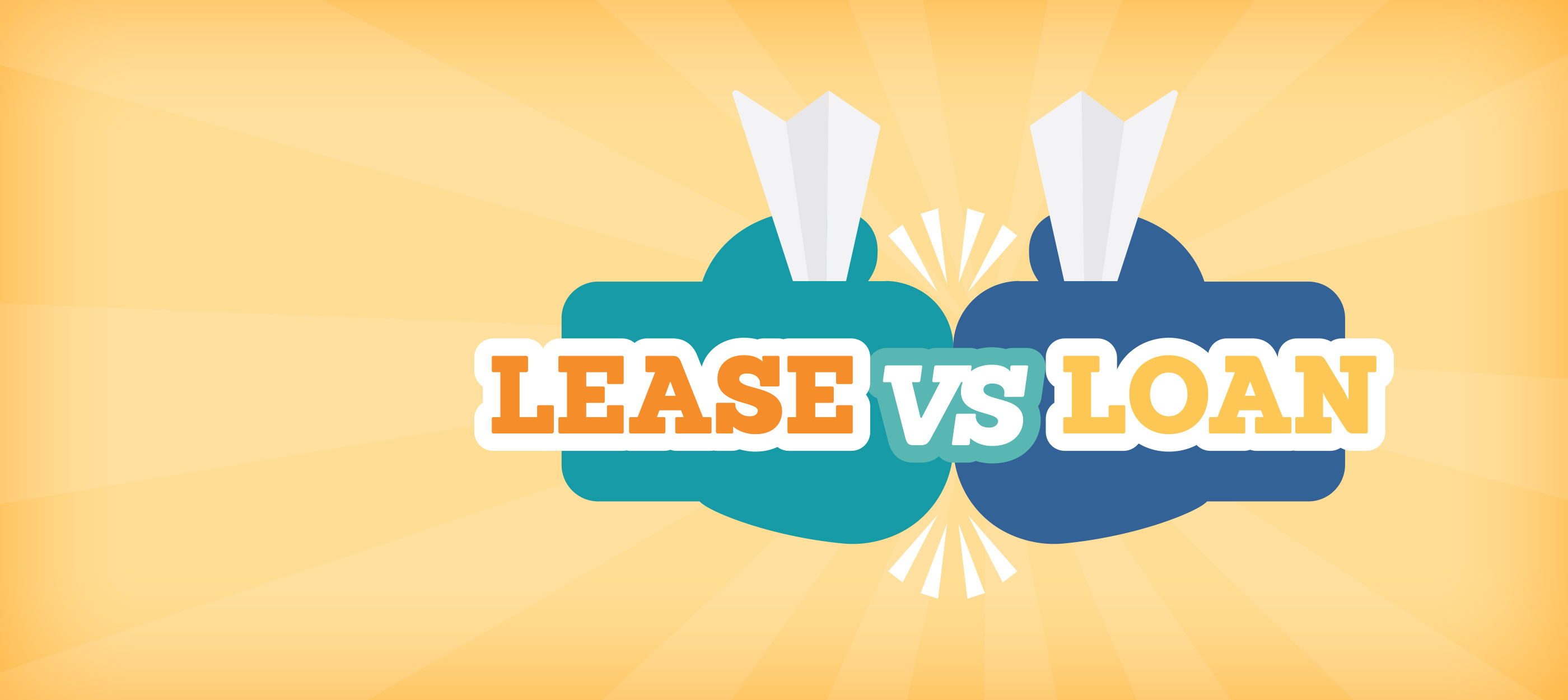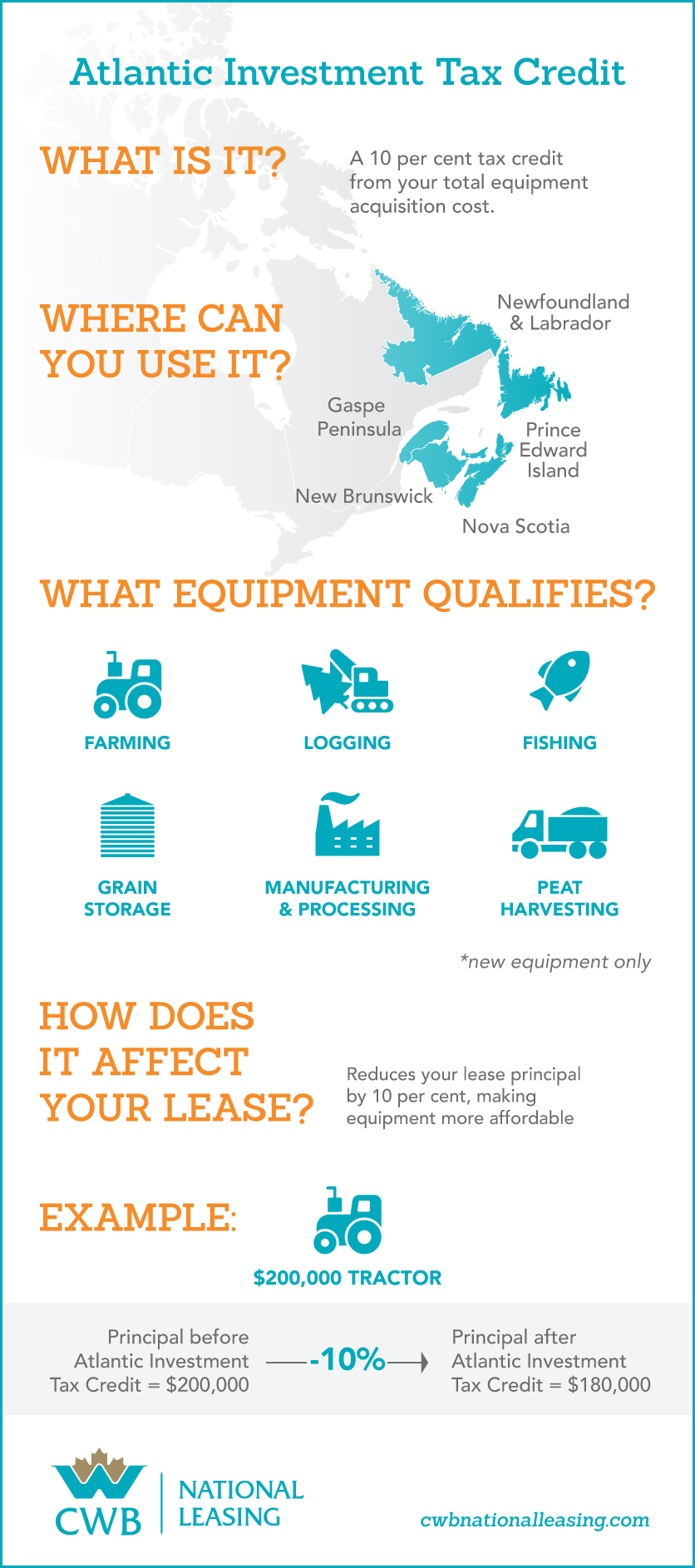
Lease vs. Loan
Compare the differences between an equipment lease and a loan with our comparison table and make the right equipment acquisition choice for your business.
See full post

By: Gerard Fitzpatrick, CPA, FCA, TEP, Partner at Fitzpatrick & Company Chartered Accountants, Charlottetown, P.E.I.
As a business owner in Atlantic Canada, you have different options when acquiring equipment. You can purchase, lease or finance using a bank loan and depending on your financial situation, one choice might be more optimal than the others. However, given its tax advantages, cash flow benefits, and trade-up flexibility, equipment leasing could be the best option for you. Let’s take a look at why.
Businesses in Atlantic Canada and Gaspe are eligible for the Atlantic Investment Tax Credit when they acquire qualified equipment. The credit is currently 10 per cent of the net cost plus the fair market value of any trade-in price. Qualified property includes any equipment used for farming, fishing, logging, manufacturing and processing, storing grain or harvesting peat. This credit can be used to pay the federal portion of your income tax bill. If you don’t use the credit in the current year, you can carry it back three years. If you still cannot use it, you’ll get 40 per cent refunded in cash. The remaining 60 per cent can be carried forward for 20 years.
You could also get the benefit of these credits through leasing. For example, if you lease a tractor for $200,000, the leasing company should be eligible for the Atlantic Investment Tax Credit toward the equipment cost. Assuming the leasing company is profitable, it should be able to use the credit thereby reducing your principal by some or all of the $20,000 tax credit.
Learn more about the Atlantic Investment Tax Credit.

When leasing equipment, you have two options: an operating lease or capital lease. Both types of leases allow you to write off your payments; however, there are some key accounting differences.
Operating lease
An operating lease is similar to a rental. The leasing company will own the leased equipment so it won’t show up on your balance sheet as an asset or a liability. Because you don’t own the equipment, your financial statements won’t show any amortization expenses or the interest portion on your lease payments. What will show is the full amount of the lease payments deducted from your income. Because you don’t control the equipment as an asset or deduct any amortization, you can write off the full amount of your lease payments as an expense.
Capital lease
With a capital lease, you’re considered the owner of the equipment and you’ll assume all benefits and liabilities of ownership during the lease. Total value of your equipment includes the length of the lease, total lease payments and the ending purchase price, also known as a residual. Your equipment and the liability you’ll pay to the leasing company (equipment cost with interest) will appear on your balance sheet. Because you’ve assumed ownership, you’ll record amortization during your lease. Payments for a capital lease are more like loan repayments rather than operating lease expenses; however, you can still deduct the full portion of your capital lease payments.
The primary reason to lease is that it eases pressure on your company’s cash flow. Like any form of financing, equipment leasing spreads one upfront purchase cost over years, and you can usually structure your payments on an annual or bi-annual payment schedule.
It’s usually simpler to lease your equipment than it is to finance. There’s less paperwork and leasing companies sometimes don’t require comprehensive financial information like banks do. You may pay slightly more interest with a lease, but rates are generally competitive with banks. The time you'll save during the leasing application and funding stages may offset the marginally higher rate.
Leasing also makes trade-ups available should you want to upgrade your equipment every few years. For example, tractors are valuable trade-up assets. You can write off your tractor’s trade-in value and apply it toward new equipment, which you can also lease to keep cash available for other business inputs.
Leasing can be a smart way to acquire any equipment depending on your situation. Whether you need a combine or grain storage, leasing eases pressure on your business's cash flow, is simpler than traditional bank financing and allows you to write off your payments as a tax expense.
To explore your equipment acquisition choices, always consult your accountant. You can also visit www.fitzandco.ca for all of your accounting needs.
Gerard Fitzpatrick has over 43 years of public accounting experience, including 39 years of experience in income tax for owner-managed business and professionals. He’s a regular speaker on farm tax information, and in 2009, Gerard lent his expertise for a farm tax succession presentation at the International Farm Succession Conference.
Posted in Equipment leasing advice,
Contact us and we'll call you right away